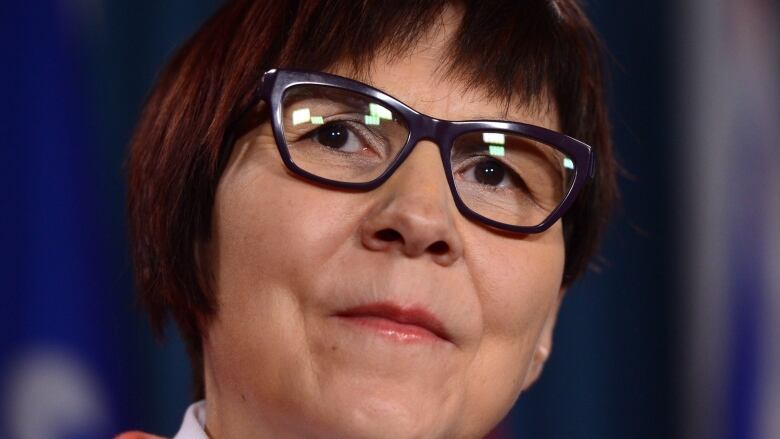First Nations advocates call foster care sex abuse report 'tragic'
Advocates call on provincial government to implement changes to foster care program

First Nations advocates are calling for provincial action after B.C.'s representative of children and youth report found hundreds of B.C. children in foster care were victims of sexualized violence.
The report cites at least 233 cases of sexualized violence against young people in care in B.C., althoughit also says the number could be higher as many cases go unreported.
More than 60 per cent of the victims were Indigenous girls, the report found, even though Indigenous youth only make up a quarter of the youth in foster care in B.C.
Cindy Blackstock, former social worker and current executive director of theFirst Nations Child and Family Caring Society of Canada, said the results were a tragic reflection of what she calls the unequal treatment received by Canada's First Nations children.
Many First Nations foster children face the additional barriers of multi-generational trauma and inequalities of services that exist on-reserve, she said.
"There are three times as many [First Nations] kids in child welfare than at the height of the residential schools," she said, adding "growing up in foster care is very difficult and it comes with very severe and life-threatening risks."
Ernie Crey, chief of the Cheam Nation and a former social worker, spent his youth in foster care and group homes.
He echoed Blackstock's sentiments.
"It does take place, and I'm not terribly surprised that it's mostly young girls that are affected to this extent."
He pointed out many foster children often move between multiple carrers or homes, and they are exposed to greater numbers of people some of whom could pose a danger.
"There has to be very close scrutiny of those individuals who are entrusted with the care of these children ... I think this is where government has fallen down."
Provincial government needs to take action
Blackstock said while reports like this one are an important tool to share stories and acknowledge what is happening, the provincial government needs to act on the report's recommendations to create change.
She said many of the reasons First Nations children end up in care are poverty, poor housing, and caregivers' substance abuse issues related to residential school trauma.
"Provinces have not retooled their child welfare system to go after those factorsand to make sure that culturally-based supports are provided throughout the whole contingent of the life of a child."
Margo Nelson, an instructor in the Langara College social service worker program, said more First Nations-focused training for those involved in foster care would be a good start.
"We are giving [our students] a lot of training in working in a First Nations context in a responsible way and on issues of abuse and neglect of children," she explained, but added that foster parents also need training too, especially about issues like sexual abuse.
Changes to the sexual health curriculum to educate children about their own personal safety should also be made, she said.
Ministry response
In an interview with The Early Edition, Alex Sheiber, deputy director of child welfare at the Ministry of Children and Family Development, said the ministry is taking a number of measures to reduce these incidents.
These include improving the protocol for foster homes, screening and monitoring foster parents, and expanding the audit program to properly evaluate social workers.
As for First Nations-specific improvements, Sheiber said the Ministry was working on strategies to prevent Indigenous children from coming to care in the first place.
"We're trying to improve guardianship standards, not just physical safety but also cultural safety," he said.
Stephanie Cadieux, the minister for children and family development, said she will discuss the report's recommendations with its partners in the coming weeks.
With files from Daybreak North and The Early Edition
To listen to the interviews, click on the links labelled Cindy Blackstock on new report documenting sexual violence against B.C.'s foster kids and Reaction to report that hundreds of B.C. foster kids victims of sexualized violence and Ministry of Children and Family Development responds to B.C. foster child sex abuse report












_(720p).jpg)


 OFFICIAL HD MUSIC VIDEO.jpg)
.jpg)



























































































